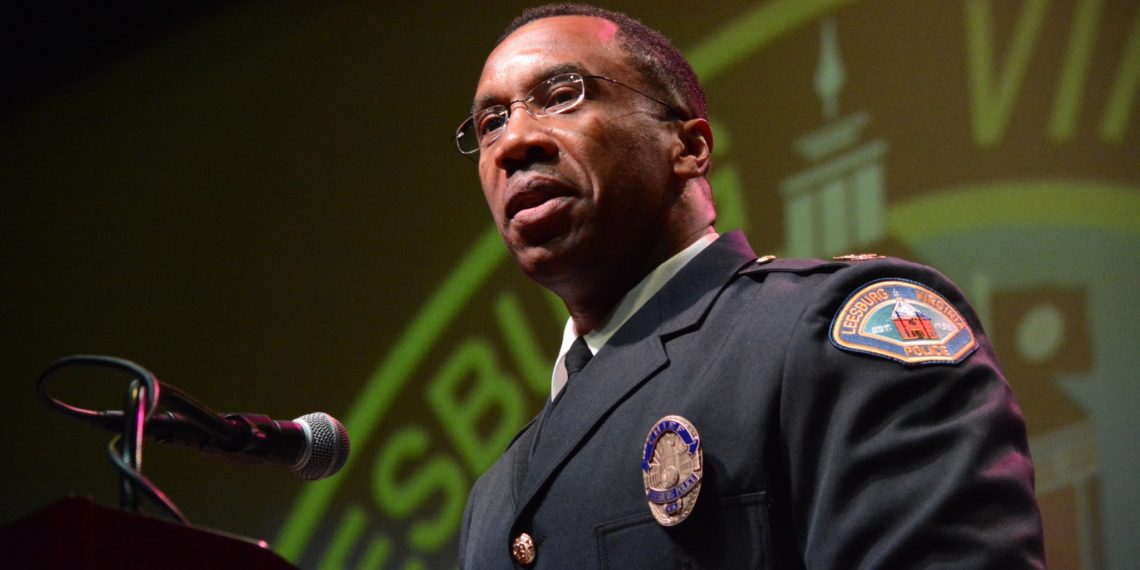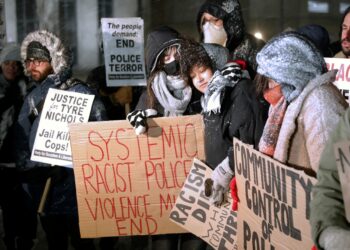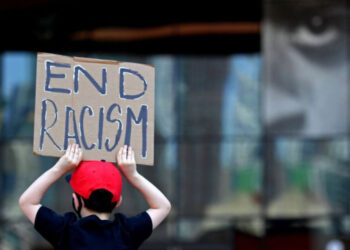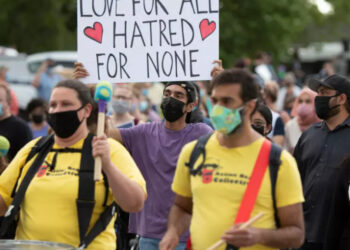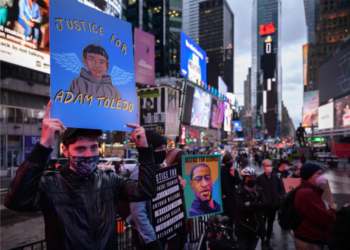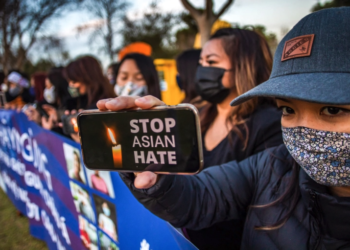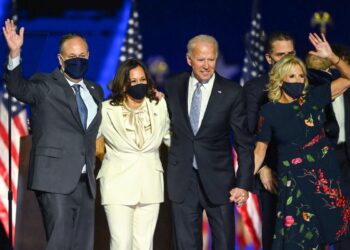As the American public turns to discussions of systemic racism and police brutality following George Floyd’s death in May, many US citizens recognize the need for systemic reform.
While some Americans are shaming and unfriending law enforcement agents, one police chief in Northern Virginia is asking protesters to sit down and have a conversation with their local officers.
Gregory C. Brown became Leesburg Virginia’s first Black police chief and highest-ranking minority in the town’s government in 2016. Chief Brown has an extensive background in public service, with experience working in education and an emergency response team.
Congratulations to the Town of Leesburg's newest Police Chief Gregory C. Brown. Well Done! Best Wishes in serving our communities. pic.twitter.com/eld0xNVtHK
— Keith Johnson (@Chief600KJ) September 29, 2016
As America approaches 100 days of police brutality protests, The Globe Post spoke with Brown about racism in policing, accountability, and his own experiences in a position of power with an intersectional identity.
This interview has been lightly edited for length and clarity.
The Globe Post: What made you first get interested in policing?
Brown: Oh man, this is going to sound corny. I’ve wanted to be a police officer ever since I was probably 6 or 7 years old. I would always see troopers on the side of the road. Back then, they had on ties, dress shirts, brown belts, and high boots. It didn’t matter if it was 95 degrees out; they always dressed very sharp. So that’s where it started, with that visual appearance seeing them out on the side of the road looking sharp. I wanted that too.
My interactions with police officers when I was young were positive. Well, that changed when my voice became deeper and when I got a mustache. It changed when I grew over six feet tall. And it changed when I started driving.
So when those things started happening I thought, wow, do I want to be a part of this type of profession? Those things continued to happen to me throughout high school, and then increased substantially throughout college, so I found myself in court all the time for traffic stops.
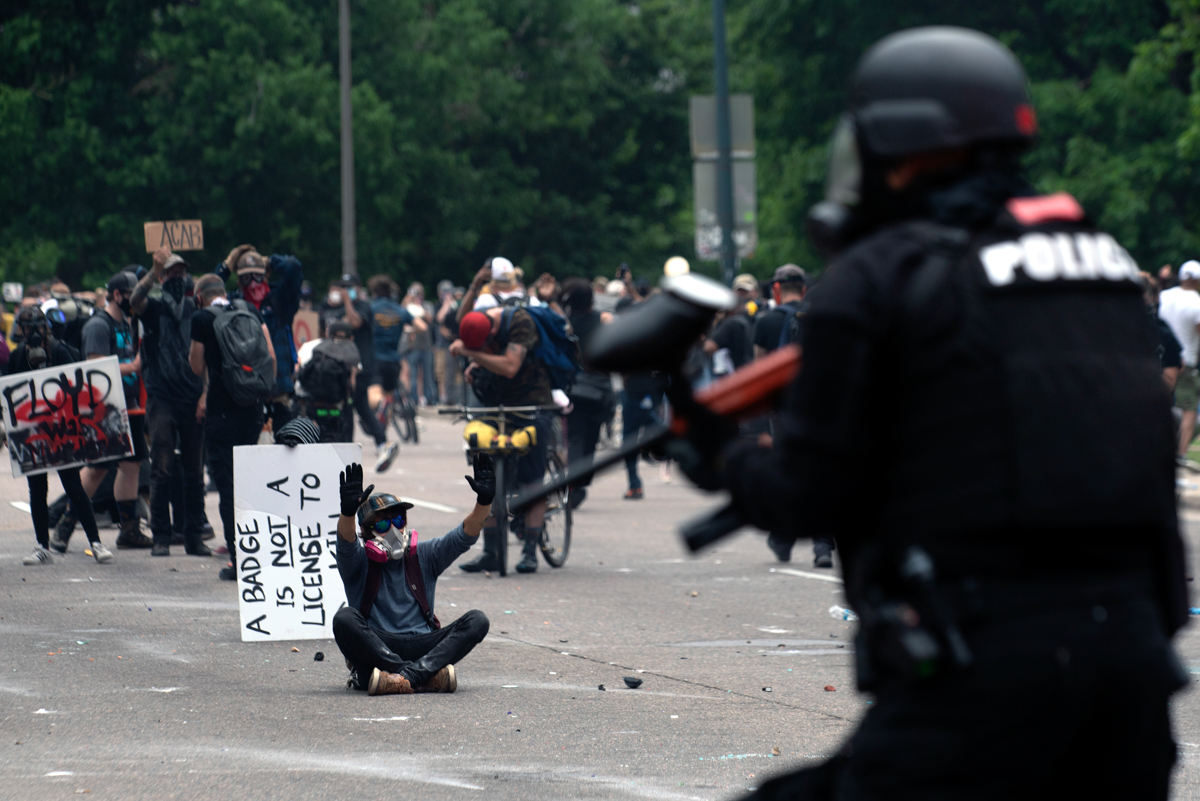
In 1990 I had an altercation with a New Jersey State Trooper during a traffic stop, where I ended up being threatened with, you know, a firearm in my back, out in the middle of the Garden State Parkway.
I knew I had to follow through, because the only way this changes is you be part of the solution. And you have to be a part of the system to make those changes. That instance could have pushed me to be a lawyer or a judge, but I felt that no, I need to be a part of this. I’m not going to allow these individuals, who in my mind can’t make up the whole system, dissuade me from following my dream.
The Globe Post: Were any of your friends or family members displeased with your career choice?
Brown: My mom was good; my dad was not okay. My mom would back me up, you know, because she’s a mom. My dad really worried as he’s from the Stapleton area of Georgia. When we visited Stapleton in 2012, they still had their slave trade block out.
I can tell you, any place that still has a slave-trading block in the middle of the town square, you’ve got to sit back and scratch your head. It’s a very strong message.
My dad’s interactions with police were minimal. But the interactions he saw police have with people that look like him was during the civil rights movement. And they were not positive, right?
By the way, I’m three generations removed from slavery. My great grandfather was the son of a slave. People don’t really understand that perspective until I actually say it like that. And so my dad’s feelings about law enforcement and his vision, view, and beliefs were “no, you don’t need to be a part of that.” Now it’s totally different. He came down to my swearing-in, and he couldn’t stop smiling and crying. Now he understands why I took the journey.
The Globe Post: As a Black police officer, how do accusations that “all officers are racist” make you feel?
Brown: Do we have a problem? Absolutely, 100 percent. You know, we’ve got a problem not just in policing, but in society in general. If you have a problem in society, what makes you think you’re not a problem? So we’re trying to solve problems in policing, which we still have to do, but it kind of overshadows the issues that we have throughout our whole criminal justice system, right?
So when I hear that — that question or that accusation that all cops are bad and all cops are racist, and so forth and so on — it really doesn’t bother me. If I didn’t have thick skin, I wouldn’t be doing what I’m doing today. Because whenever you’re in a position of leadership, you have to have thick skin. You have to have thick skin in this profession.
Real leadership is about deescalating violence by listening to Black Americans who can’t watch another friend or neighbor die at the hands of police. It’s ordering DOJ to step in and stop racist policing. It’s pushing the Senate to pass a bill to fundamentally change policing.
— Elizabeth Warren (@SenWarren) August 31, 2020
They’re basically broad-brush painting a whole profession of 800,000 people throughout the United States as racist. I think that’s dangerous. But a lot of times, people will take the most extreme approach to push forth their agenda to be heard. We’re seeing that on all levels.
Most of them have never even been engaged with law enforcement, right? So for me, I laugh it off because it’s ridiculous to me. I stand in the perspective of not just being black and blue, but I stand on a perspective of actually being a victim of violent crime. So I’m a very small percentage of the population. I’m Black, I’m a police officer, and I was a victim. How many people can say that?
So, you know, I’m all for conversation, but the conversation has to be fact-based. [It] has to be from a mature and intelligent perspective. It has to be respectful.
The Globe Post: Has an alleged criminal ever asked you why you, as a Black man, are in law enforcement? Do you remember what you said in response?
Brown: Yes, I have. Never asked as nicely though! I won’t repeat verbatim what many of them said, but for eight years, I ran Loudoun County’s Vice, Narcotics, and Gang Intelligence Task Force. We evolved into a very effective unit. Leesburg’s nickname used to be Sleazeburg – it wasn’t always the safest community. It wasn’t always the desired place to live.
Many times I would go out into the field, and I would get asked this same exact question. And my response to them is, why are you selling crack?
That was my response to them when I was younger. I would handle it a little bit differently now, but if they’re flinging insults at me, calling me the n-word in front of my fellow officers, talking to them logically obviously isn’t going to work.
So, why are you out here running young girls? Why are you out here stabbing folks? You’re selling crack in your home, to your people. So before you ask me what I’m doing, ask yourself what you’re doing out here in the streets.
The Globe Post: How exactly do police unions stop chiefs from implementing policies that they want to implement in their jurisdiction?
Brown: They have a lot of power. And I’ll tell you the story of a chief who used to work here in Virginia. He went back to his home state, which was a union state, and in that particular state, the police officers only had a patch on their right arm.
Now to me, that’s an officer safety recognition issue. But for most departments, it probably was just cheaper to only put a patch on one side. So the chief wanted to get these guys outfitted with patches on both sides. However, he received a phone call from the union, and they said, you’re not doing anything. Any changes and alterations in uniform have to be run through the union. So unions have got the ability to stop you from putting a patch on a shirt that benefits and increases the officer’s safety.
Imagine trying to pass particular policies or fire somebody.
So I understand the benefits of a union, but unions can get out of control. They should only be involved in collective bargaining as it pertains to compensation and benefits, not the disciplinary process. That’s exactly what happened in Minneapolis, with George Floyd.
I’ve watched that video a number of times. Officer Chauvin was on that gentleman’s neck for 8 minutes and 46 seconds. Somebody should have bought him a plate of food because that’s how casual he was. That’s emblazoned, emboldened, that’s “nobody can touch me.” He went through 17 disciplinary instances, and nobody was able to touch him.
Prosecutors leveled new criminal charges against three fired Minneapolis police officers and increased the charge against officer Derek Chauvin for the death of George Floyd, a case that has led to more than a week of protests https://t.co/GOow9j4ruy pic.twitter.com/lzR80AiGtt
— Reuters (@Reuters) June 4, 2020
So I’m all for pay compensation and equitable treatment for grievances pertaining to those types of things, but when it comes to the disciplinary process as a result of behavior, [unions] should not be involved in it.
Chiefs need that absolute authority to be able to terminate. Now granted, as chief, I still have to go through a process. I still work very closely with our town attorney and human resources director, and then we actually go and present to the town manager the reason why this individual should be separated. So we still have a very equitable process, right?
So I have the ability to separate someone a lot quicker than some of my colleagues and counterparts in other states, and that’s due to being in a right-to-work state.
The Globe Post: What message would you give to anti-racism protesters in the streets if given the chance?
Brown: Talk to an officer. Talk to us when you have an opportunity to have a dialogue. Let’s have a conversation in an intellectual, mature fashion. Let’s get this thing done. It’s got to be fact-based and it’s got to be realistic.
Before you vilify every individual in the system, come have a conversation with me. Tell me why we’re racist. Tell me your interactions. Tell me factual-based knowledge as to why you think that.
We can have an intelligent and respectful conversation. But the yelling and screaming of “F the police,” holding up foul signs, throwing bottles of urine, we can’t have a conversation that way. What that does is it overshadows the real issue. And there is a real issue. There is a real issue with a system that has to be fixed. Absolutely. But what that does is push those individuals that are on the fringes, trying to have a discussion, they now get knocked to the other side.
So talk to me. We have Coffee with a Cop. We do Chat with the Chief. Come talk to us, not after something bad happens, talk with us now.


